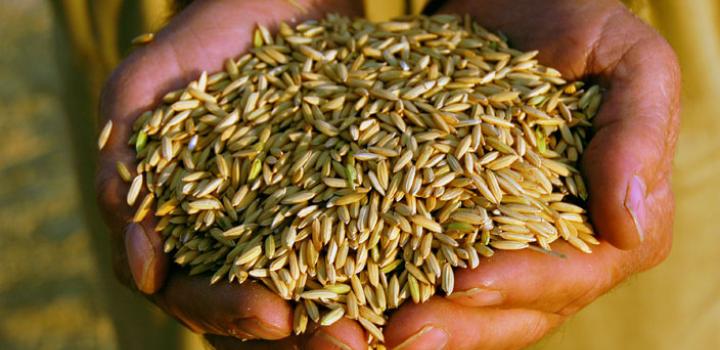After opening to U.S. beef, China plans to open its markets to U.S. rice
by July 20, 2017 2:37 pm 1,042 views

After years of posturing, the Chinese government agreed Thursday (July 20) to allow U.S. rice farmers to export their crops to the largest rice consuming nation on Earth.
An agreement was reached Wednesday (July 19) during bilateral negotiations in Washington D.C., according to the United States Department of Agriculture. China consumes as much rice as Arkansas produces every 13 days, so the impact to the Natural State could be significant, Arkansas Rice Federation Executive Director Ben Noble told Talk Business & Politics. The immediate impact to regional farmers is something they haven’t had in awhile – “hope,” he said.
“This is great news for the Arkansas rice industry. Our governor and federal delegation have shown great leadership in pressing China for market access. We look forward to working with them and the Trump administration as the technical details of this agreement are addressed,” Noble said.
Gov. Asa Hutchinson said the market opening could be a “significant boost” for the state’s agri industry.
“The news today announcing that the U.S. is now permitted to sell rice to China for the first time in history is a significant boost to Arkansas — the nation’s No. 1 rice producer — and our overall economy. This is an issue I’ve consistently advocated for this on my trade missions to China and in meetings with the Chinese Ministry of Agriculture. I applaud Secretary Perdue and the USDA for their tireless efforts in getting this deal done. It’s a great day to be an Arkansan.”
It will likely be several months before the first rice exports leave for China. The next step will be an inspection of U.S. rice mills and packaging facilities by the Chinese phytosanitary authorities. This process will delay the first exports to China for several months, but the agreement is likely to provide a boost to new crop sales. There are other technical aspects that will have to be addressed, Noble said.
The protocol – the most complex rice phytosanitary agreement in which the U.S. has ever entered – contains an operational work plan that details the responsibilities of companies wishing to export in order to protect against the introduction of certain pests into China. USA Rice led efforts during the past two years to assemble a list of interested exporters, and with the USDA to certify a compliance with the work plan.
“The president (Donald Trump) and U.S. Agriculture Secretary Sonny Perdue have opened the door; now it’s time to move to our technical to-do list so that rice shipments can occur,” USA Rice International Trade Policy Committee Chairman Carl Brothers said. “We know China wants to send a team here to inspect mills and facilities certified to ship to China, and we’re working with USDA to make that happen in the quickest and most efficient way.”
China has been able to produce enough rice to supply its population and region for many years. In 2006, U.S. officials began talks to open the market up to U.S. rice growers. The country’s population has grown, and it needs new suppliers, Noble said. USDA expects China to import 4.8 million metric-tons of U.S. rice from 2017-18. China’s rice imports have grown in recent years, and are hovering near 5 million metric-tons.
China has been a member of the World Trade Organization since 2001, but the U.S. has been barred from selling rice there because it lacked the phytosanitary standards required by the Chinese government. Seminars will be held in China and the U.S. to educate consumers about the different kinds of American rice. Demand for export rice will be highest in coastal areas, restaurants, hotels, and high income consumers.
Arkansas is the leading rice producer in the U.S., and it grows about half the rice in the country. Floods and low prices have dogged Arkansas rice farmers for the last several years. The state is expected to harvest a little more than 1 million rice acres this year, one of the lowest years in the last three decades. A new market means rice acres in Arkansas will likely expand in the coming years, and the agriculture sector in the state will strengthen based on this deal.
“The U.S. And Arkansas are now one step closer to providing the consumers of China with high quality U.S. rice,” Noble said.
The rice news comes a little more than a month after China said it would open up to U.S. beef. The Trump administration announced June 12 an agreement with China on final details of a protocol to allow U.S. companies to ship beef exports to China.
The terms of the deal which include full animal traceability back to the farm, no growth promotion agents used in the production cycle, and cattle being under 30 months of age will take time to muster. Over the past few years, China has emerged as a major beef buyer with imports increasing from $275 million in 2012 to $2.5 billion in 2016. However, the U.S. has been banned from China’s market since President George W. Bush was in office.
